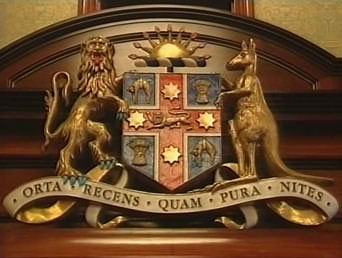October 5, 2005
Victorian Auditor General Wayne Cameron has investigated the claim and found the alleged misuse of funds was possible, but not able to be proven.
He has referred the matter to the police.
Mr Cameron's report, tabled in parliament today, says the money in the Geelong Magistrates' Court fund was meant for needy people who sought help from the court and for charities and welfare groups.
Money in a court's poor box comes from defendants who are found to have broken the law and are ordered to make a payment to the fund, which is separate to a magistrate imposing a conviction and fine.
However, the system of administering the money at Geelong was found to be lacking in accountability and open to misuse.
"Under the existing circumstances, it is very difficult for the court to identify, let alone effectively prevent, the possible misappropriation of funds," the report said.
"The internal audits also identified instances where court funds had been misappropriated or there was a strong suspicion they had been misappropriated," Mr Cameron's report said.
The Geelong whistleblower - a former court employee - alleged that "a number of court staff acting together misappropriated approximately $200 per week from the court fund during the period from 1995 to 1998".
Staff took cash from the day's takings and replaced it with court fund cheques "made out to fictitious persons," the whistleblower said.
"These cheques were opened to cash and included in the court's daily bankings."
The report said: "One of the magistrates endorsed payments from the fund at the end of each month by bracketing the payments on each page of the cashbook and signing his name next to the bracketed payments".
"Such a procedure effectively transfers discretion and control over the funds from the magistrate to court staff."
Also, trust account cheques for amounts up to $5,000 had been endorsed with the words "please pay cash," contrary to the requirements of the registrar's manual, the report said.
Last year, in a call to the Ombudsman's office, the whistleblower first alleged that staff had been misappropriating funds.
Early this year, the same person contacted the office again and, under oath, disclosed how the alleged misuse had been carried out, named the people allegedly involved and identified several potential witnesses.
In August, those witnesses were interviewed under oath by staff from the Auditor General and Ombudsman's offices.
"One witness provided strong corroborating verbal evidence that the alleged fraud had taken place," the report said.
The investigation by the auditor general included a review of the court's financial management systems and procedures.
It found that in 2001, the Geelong Magistrates' Court started the Kicking Goals youth program which also showed payments not supported by documentation.
"Consequently, we were unable to determine who received the funds or whether the payments were made for appropriate purposes," the report said.
"Following receipt of our draft report in August 2005 by the (Justice) Department, the Kicking Goals Youth program was discontinued."
The draft report also spurred Victoria's chief magistrate to issue a direction to all regional coordinating magistrates that no cheques be made payable to cash and that no further cheques be made payable to individuals.
Mr Cameron said the Justice Department's response to the findings was "proactive and positive".
Comment was being sought from Victorian Attorney-General Rob Hulls.
Victorian Attorney-General Rob Hulls said he welcomed the report.
"The Department of Justice and Magistrates' Court have moved quickly to address the major recommendations of the auditor-general in relation to this matter," he said.
"The department initiated its own independent inquiry ahead of the auditor-general's report and the findings of both inquires provide a solid platform to moving forward.
"Both the department and court are drafting detailed criteria and guidelines to strengthen the administration and management of the court fund."
- AAP
http://www.theage.com.au/news/national/court-staff-accused-of-stealing-from-poor-box/2005/10/05/1128191763868.html














































